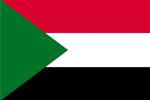
Population
44M+
CHRISTIAN PERSECUTION STATUS
high
Persecution
CHRISTIAN POPULATION
4%
Status of
the church
Sudan has an estimated 43 million people living within its borders, of which 95% are Sunni Muslim, 4% Christian, and 1% practice indigenous beliefs. Converting from Islam to another religion is punishable by imprisonment and even death. There are small but long-established groups of Orthodox Christians in Khartoum and other northern cities, including Coptic Orthodox and Greek Orthodox. Other Christian groups with smaller followings include the Africa Inland Church, Armenian (Apostolic) Church, Sudan Church of Christ, and Sudan Evangelical Presbyterian Church.
Sudan’s hostility towards Christians intensified with the secession of South Sudan when Sudan President Omar al Bashir vowed to only recognize Islamic culture and the Arabic language. The country is now on the Open Doors World Watch List of nations where Christians face the most persecution (Open Doors World Watch List).
Sudan faces a refugee problem; along with its own internally displaced people, it has refugees from neighboring countries like Ethiopia and Chad, placing a severe strain on Sudan’s public services and capacity to cater to the needs of its people. Average literacy in Sudan is 75%, and school life expectancy is eight years (CIA World Factbook).
The government controls state TV and radio operations. The Internet offers relative free expression, but the government may shut down sites they deem blasphemous (BBC). Only 28% of people have access to the Internet as it is costly for many (CIA World Factbook). Satellite TV is popular in Sudan.
Location
Prayer points
What our viewers are saying